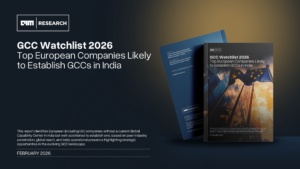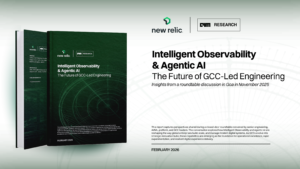In 2001, Steven Spielberg’s film “A.I. Artificial Intelligence” delved into the ethical dimensions of working with AI, revolving around a young android named David striving to attain humanity through deep learning and machine learning. The movie prompted crucial reflections on the boundaries between humans and artificial intelligence, challenging entrenched beliefs about consciousness and self-awareness. As AI has gained prominence in recent years, it has revolutionized industries while triggering debates on its societal impact.
This progress, however, brings to light critical ethical considerations concerning AI’s potential consciousness and emotions, challenging traditional notions of sentience. As the world embraces AI’s imminent widespread adoption across various sectors, concerns surrounding its scope and associated risks have emerged. Addressing these concerns necessitates robust governance models and controls to ensure effective AI utilization while safeguarding against privacy breaches and ethical quandaries.
The challenge lies in establishing comprehensive controls to limit data access, ensuring responsible data-sharing practices, and regulating the utilization of information by AI systems. The industry faces a common concern regarding the rapid adoption of AI without fully understanding its potential downsides. Organizations are actively exploring the capabilities of AI yet grappling with the ethical implications of its widespread integration across sectors.
How secure is your data shared with AI?
The upcoming wave of workplace automation, projected between 2030 and 2060 by McKinsey’s research, suggests that almost half of today’s tasks could transition to automation. Generative AI, expected to contribute $2.6 trillion to $4.4 trillion annually to the global economy, drives this impending shift. However, recent findings stress the substantial cost of data breaches, averaging a daunting USD 4.45 million per incident for companies. This highlights the urgent need to protect sensitive information, particularly as employees may share data with generative AI tools for efficiency. The delicate balance raises major concerns about data security and confidentiality, as seen in Samsung’s accidental exposure of sensitive information earlier this year due to an engineer’s unintentional upload to ChatGPT.
To ensure a secure rollout of generative AI, assembling a proficient team versed in data security is imperative. This team, comprising legal experts, a data protection officer (DPO), security specialists, privacy officers, and IT personnel, oversees compliance, navigates regulations, and fortifies data protection measures.
What The future of AI with data security looks like.
AI is a transformative force in bolstering cybersecurity, offering improved, more precise, and rapid responses. Its applications in this realm are diverse and impactful:
Using pattern recognition, AI excels in anomaly detection and behaviour analysis, allowing real-time threat detection and significantly decreasing false positives. Studies, such as the Ponemon Institute’s 2022 research, indicate a 43% reduction in false positives in organizations employing AI-driven intrusion detection systems. Moreover, AI-powered email security solutions demonstrate the potential to slash false positives by up to 70%. AI augments human capabilities, enabling swifter responses and scalability contingent upon available data. AI-powered chatbots serve as virtual assistants, providing crucial security support while alleviating human agents’ workload.
In incident response and recovery, AI automation based on prior training and comprehensive data collection accelerates response times, bridging detection gaps. Automating routine tasks and reporting expedites processes, provides insights through natural language queries, simplifies security systems, and offers valuable recommendations to fortify future cybersecurity strategies.
Moreover, AI-powered generative technology is pivotal in creating authentic phishing simulations and facilitating hands-on cybersecurity training. By fostering a culture of vigilance among employees and preparing them to combat real-world threats, such simulations contribute significantly to cybersecurity readiness.
Who governs and implements the controls around the AI
Governance and implementation of controls for AI involve critical aspects of responsible risk management within organizations. While AI brings unparalleled business prospects, its unquantifiable risks necessitate proactive handling. Establishing a robust AI framework becomes paramount to instilling trust in technology performance, emphasizing transparency and efficient algorithm governance. Experienced professionals oversee the overall governance framework for AI, aligning it with corporate policies and risk guidelines. Continuous monitoring and the derivation of value-added insights offer users visibility into various metrics related to trust imperatives, ensuring a vigilant approach to risk management.
The UK government published a policy paper on “A pro-innovation approach to AI regulation” in Spring 2023, open for consultation until June 21st, 2023. The UK government has set out five cross-cutting principles underpinning the UK’s AI: safety, security, robustness, appropriate transparency and explainability, fairness, accountability and governance, and contestability and redress. Additionally, the European Union has passed the AI Act, the world’s first comprehensive AI law, which regulates the use of artificial intelligence in the EU to ensure better conditions for the technology’s development and use. The AI Act establishes obligations for providers and users depending on the level of risk from AI systems, and non-compliance with the rules will lead to fines ranging from €7.5 million or 1.5% globally, depending on the infringement and size of the company. Therefore, it appears that regulations related to AI and data governance are expected to come into effect in 2024.
Do we understand the scope and limits of AI?
Artificial intelligence (AI) has been touted as a game-changer that will revolutionize our lives and work. PwC predicts AI will add $16 trillion to the global economy by 2030. However, after years of hype, many people feel AI has failed to deliver its promises. Consumers of AI must understand its benefits and constraints.
In the age of AI, privacy has become an increasingly complex issue, with the vast amount of data being collected and analyzed by companies and governments putting individuals’ private information at greater risk than ever before. Lack of transparency can lead to distrust of AI systems and unease. To address these concerns, organizations and companies that use AI technology must take proactive measures to implement strong data security protocols, ensure that data is only used for the intended purpose, and design AI systems that adhere to ethical principles. Educating users about AI’s capabilities and limitations will help them set realistic expectations and avoid making assumptions about its capabilities. Furthermore, it is crucial to recognize the role of AI in supporting human judgment and the ethical implications of its use. Companies are worried about the potential exposure of training models using publicly shared data, and more than eight in ten decision-makers surveyed for data strategy and management are concerned about sharing data with third parties.
At the same time, AI offers many benefits for businesses, including improved decision-making, enhanced efficiency, and increased productivity. As organizations integrate AI technologies into their operations, they are experiencing tangible advantages that are expected to drive significant financial value. Research indicates that 87% of organizations believe AI and machine learning will contribute to revenue growth, operational efficiency, and enhanced customer experiences. AI enables companies to automate repetitive tasks, analyze large volumes of data for valuable insights, and operate continuously, thus streamlining processes and saving time. Additionally, AI can help reduce human error and risk, leading to more consistent and reliable results. However, alongside these benefits, it is crucial to address the concerns related to data privacy, security, and ethical use of AI. Organizations must proactively enforce limitations on AI capabilities to ensure that data is used responsibly and ethically. By understanding the advantages and limitations of AI, businesses can harness its potential while mitigating associated risks.
As AI continues its rapid evolution, the intricate algorithms and opaqueness in data usage create significant privacy risks. Organizations must remain vigilant in addressing these challenges, ensuring that AI deployment aligns with responsible and ethical practices. Protecting data privacy is a critical aspect in AI and machine learning, where the quality and quantity of data profoundly impact model outcomes. Proactive measures, including robust data security protocols, ethical AI system designs, and a commitment to using data for its intended purpose, become essential to innovate responsibly while preserving privacy. Responsible AI adoption also demands the avoidance of datasets carrying discriminatory biases and maintaining respect for individuals contributing to the data. Despite AI’s transformative potential, it’s crucial to prioritize data privacy and security for an ethical and controlled evolution of AI technology. The increasing adoption of AI, propelled by advancements like ChatGPT, has revolutionized industries, driving efficiency and competitiveness. However, concerns persist around privacy, security, and data governance. Addressing these concerns necessitates a robust governance and legal framework to regulate AI’s ethical use, focusing on matured AI systems that enhance productivity while upholding privacy and security standards.





